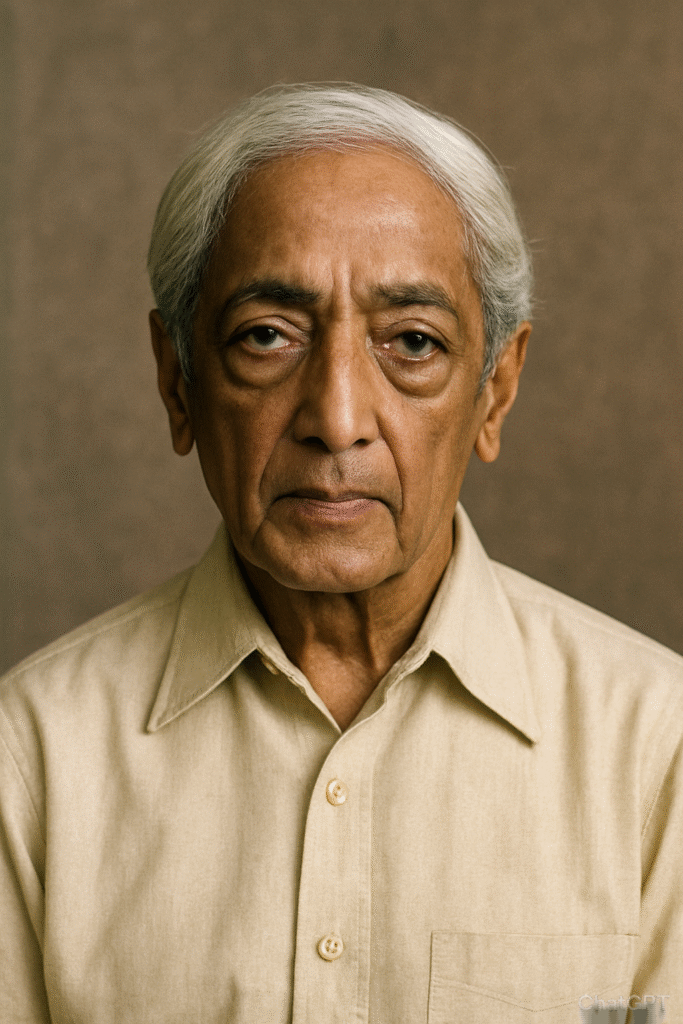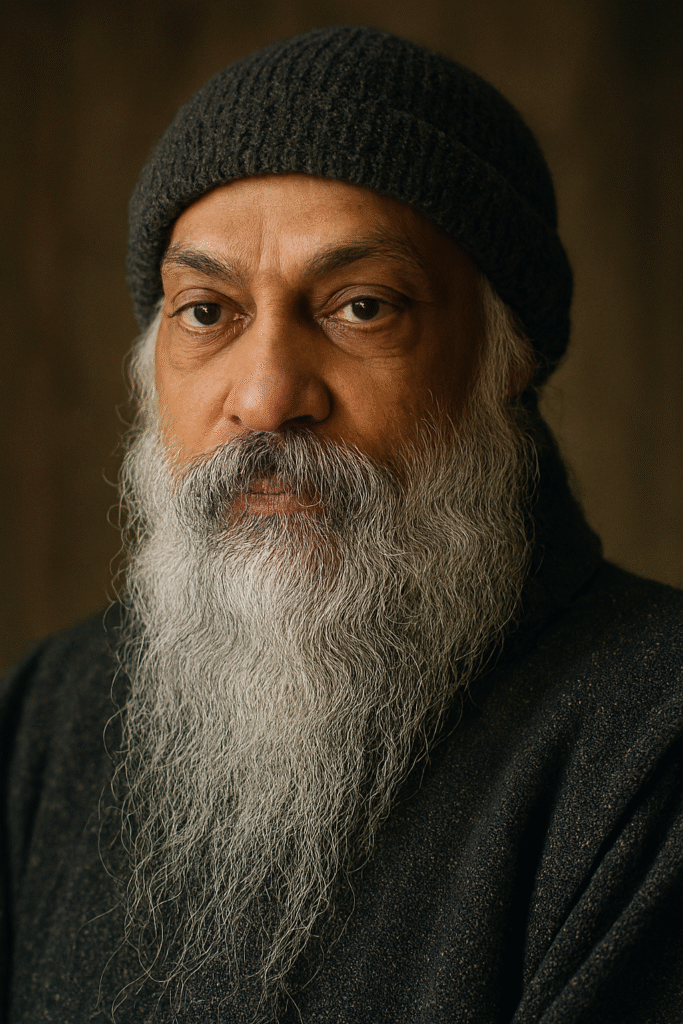Osho and J Krishnamurti on Self Care
- by greatsurajitgenius@gmail.com
- in Uncategorized
- on August 14, 2025


Saying ‘No’ Without Guilt
A practical, compassionate guide to honouring your truth, protecting your energy, and cultivating relationships rooted in clarity and love.
Why is it difficult to say ‘no’?
Because fear hijacks honesty. We fear hurting others, being rejected, or appearing selfish—so we say yes while our whole being says no. That creates inner division and turns relationships into polite performances.
- Fear of rejection or judgment
- Desire to be seen as “nice” or helpful
- Habit of avoiding discomfort and conflict
- Result: a fake yes and quiet resentment
How conditioning trains us to please
We’re taught to be “good” by keeping others comfortable: adjust, compromise, sacrifice. Too often, the so‑called “greater good” becomes someone else’s comfort at the cost of your truth.
- “Be a good boy/girl—don’t upset anyone.”
- “Adjust for the greater good.”
- Outcome: your truth is minimized, burnout follows.
Your first responsibility is to protect your inner flame. A burnt‑out candle lights no other candle.
Is saying ‘no’ selfish?
Acting from truth is self‑respect, not selfishness. The real selfishness is saying yes just to avoid discomfort or maintain a “nice” image.
- Truthful no → clean energy, honest care
- Fear‑based yes → fatigue, quiet resentment
- Self‑respect enables deeper love and presence
Midnight call: what is real care?
Friend calls at midnight; you’re exhausted. A forced yes gives them a distracted you. A gentle no—“I care for you, let’s talk tomorrow”—offers presence and real support the next day.
- Short‑term discomfort vs. long‑term trust
- Presence over performance
Alignment dissolves guilt
Guilt arises when there’s a gap between what you feel and what you do. End the dependency on approval, and a free, guiltless “no” becomes natural.
- Notice dependency on being liked
- Value inner intelligence over opinion
- Let words match the heart—no division
A gentle practice for truthful choices
- Pause. Before answering, breathe and feel.
- Ask: “Am I saying this from love or from fear?”
- If love → say yes. If fear → dare to say no.
- Stand kindly. Discomfort fades; clarity stays.
Tip: Don’t turn this into a rigid rule. Use awareness, not a script.
Boundaries are not walls
A wall rejects. A boundary honours both sides. Protecting time and energy creates space for genuine connection. Love needs freedom; compulsion breeds resentment.
Do (Healthy Boundaries)
- Be clear, brief, and kind
- Offer alternatives when possible
- Hold your line without apology loops
- Protect sleep, focus, and priorities
Avoid (Hidden Walls)
- Over‑explaining or justifying
- Ghosting to dodge discomfort
- Passive‑aggressive hints
- Saying yes while resenting
Polite, professional phrases for ‘no’
Save and reuse these lines
- “Thanks for thinking of me. I won’t be able to take this on.”
- “I can’t commit right now. If timing shifts, feel free to check back.”
- “That doesn’t align with my priorities this week.”
- “I need to pass so I can honour existing commitments.”
- “I’d love to help, but I don’t have the capacity. Here’s an alternative…”
- “I care about you. Tonight I need rest—can we talk tomorrow?”
Full Essay (Cleaned & Formatted)
You ask me, “Why is it so difficult to say ‘no’ without feeling guilty?” Let us explore together, not from the standpoint of someone giving you rules, but as two friends looking at life. When you say “no,” what actually happens inside you? There is often fear — fear of hurting someone, fear of being rejected, fear that people will think you are selfish. And this fear makes you say “yes” when your whole being is screaming “no.” Is that not hypocrisy? The ‘yes’ you give is not truth, it is a mask. Then the relationship becomes a polite lie. You smile, you agree, but deep inside you resent the person, you resent yourself. So the real problem is not the word ‘no,’ but the conditioning that tells you that refusing is wrong.
We have been trained since childhood to please others. Parents say, “Be a good boy, a good girl, don’t make others upset.” Society says, “Adjust, compromise, sacrifice for the greater good.” But have you noticed that this “greater good” is often someone else’s comfort at the cost of your truth? Osho would say, “A false smile is violence to your own soul.” And is it not strange — the world praises selflessness, but ignores the fact that a person who has lost their own self cannot truly help anyone? A burnt-out candle cannot light another candle. So your first responsibility is to protect your inner flame.
“But isn’t that selfish?” you might ask. Let us look closely. What is selfishness? If you act from your deepest truth, if you keep your energy pure, you are able to meet people with honesty, clarity, and love. Is that selfishness? Or is it selfish to say ‘yes’ when you don’t mean it, because you want to avoid discomfort, because you want to be seen as nice? We must see that sometimes what society calls selfishness is actually self-respect, and what it calls kindness is often cowardice.
Consider a simple example. A friend calls you at midnight wanting to talk for hours. You are tired, you have an early meeting, but you say yes because you don’t want to hurt them. You sit there listening, half-asleep, not really present. They think you are helping, but in truth, you are giving them a tired, distracted version of yourself. Now imagine you say, “I care for you, but I need to rest. Let’s talk tomorrow.” This ‘no’ may disappoint them for a moment, but the next day you will speak with energy, attention, and real care. Which is the greater love?
Krishnamurti would point out that guilt arises only when there is division between what you feel and what you do. If there is complete alignment, there is no guilt, no conflict. The problem is that we have learned to value the opinion of others more than the intelligence of our own being. This dependence makes us prisoners of approval. And a prisoner can never say a free ‘no.’ So before you can say ‘no’ without guilt, you must free yourself from the need to be liked. This is not rebellion against others — it is simply the ending of dependence.
Let us not turn this into another technique. Do not say, “From today, I will say no more often.” That again becomes mechanical. Instead, watch your own inner movement. The next time you are about to say yes, pause. Ask yourself: “Am I saying this from love or from fear?” If it is love, say yes. If it is fear, dare to say no. You will feel discomfort at first, because the old habit will resist. But slowly you will see that a truthful ‘no’ carries no guilt. It feels clean, like a clear sky after rain.
One must also see that boundaries are not walls. A wall says, “I reject you.” A boundary says, “I honour both you and myself.” When you protect your time, your energy, your mental peace, you are not pushing people away — you are making space for genuine connection. This is why both Osho and Krishnamurti insisted that love can exist only in freedom. A love born out of compulsion is slavery; a love that respects both yes and no is alive.
So the art of saying ‘no’ without guilt is not about learning better phrases or being more assertive — it is about living without inner division. It is about seeing that your truth is not in conflict with kindness. In fact, kindness without truth is manipulation. When you stand in your own clarity, when your words come from the same place as your heart, then whether you say yes or no, it will carry a fragrance of authenticity. And that is the greatest gift you can give to another — the gift of your undivided self.
© 2025 — Built with clarity & compassion. You’re free to copy, adapt, and use this page.